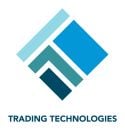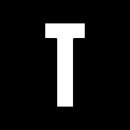Technology has found a veritable home in the financial market, spurred in part by disruptive tech companies that for the past couple of decades have brought increasing levels of innovation, efficiency, and transparency to an industry once dominated by strictly physical exchanges. As these fintech hybrids continue to prove their worth (in terms of market presence, trade volume, VC-backing, and integration of their tech-powered and data-driven tools), open markets are in the midst of a tech revolution.
We talked with four Chicago companies at the epicenter of trading technology innovation to learn more about the tech they’re building and how it’s shaping the future of finance.

Trading Technologies International (TT) develops and delivers trading software to futures and fixed income traders. With more than 22 years of experience, the company counts international banks, brokers, hedge funds, proprietary traders and other trading institutions among its customers.
“Our product, TT, is the fastest commercially available trading solution on the market, with a low-latency infrastructure co-located with the largest derivatives exchanges and a suite of services run in Amazon’s Virtual Private Cloud (AWS) for non-latency sensitive functions,” said Drew Shields, TT’s CTO. “What sets this platform apart is that it is the only trading system in the world to offer unparalleled speed and all the benefits of software-as-a-service (i.e., no infrastructure costs, accessibility from any internet-connected device, unrivaled access to trading and market data, etc).”
Response via Drew Shields, CTO.
Let’s talk tech. How does technology power the work you’re doing?
Our platform uses a hybrid architecture leveraging best-in-class technologies for various categories of functionality. This means that we are using AWS for non-latency sensitive functionality such as storing reference data or capturing and making accessible every trade-related action taken for all time for a user (we call it the “forever audit trail”). On the other hand, we are also heavily invested in low-latency infrastructure and software that is co-located with exchange matching engines. This hybrid solution allows us to deliver a scalable platform with a software-as-a-service delivery model without sacrificing speed of execution.
What technology, data and/or other information do you think gives traders an edge on their competition?
Having access to tools that allow traders to quickly get ideas out of their head and into the market is paramount. Our ADL (Algo Design Lab) application allows users to create custom trading strategies without writing code. ADL users design, test, deploy and execute automated trading strategies with safety and speed.
With respect to data or other information providing an edge, that is what makes trading so interesting and competitive. Each trader brings his or her own perspective on what information moves the market. What we do is provide the tools for them to take those perspectives and opinions and deploy them into the market.
What do you think the relationship looks like between trading experts and technology? In other words, can artificial intelligence ever trump human intuition?
In the world of automated trading, which accounts for huge amounts of volume traded across nearly every market and asset class, human intuition has already been removed from the critical path when making trading decisions. What most firms engaged in automated trading do is use automated statistical analysis and machine learning to implement, and continuously tweak or improve, a strategy. On the other hand, TT also supports many users who are making decisions on their own using their experience, or intuition, and then executing those decisions manually. Even in those cases, the more data that is available to inform the trader’s intuition, the better off they will be. So ultimately, depending on the type of market where a trading strategy will be employed, the dependence on AI versus human intuition will vary.
What do you think the future of trading looks like?
Reducing latency continues to be important, but the industry has also realized that mining data for meaningful insights is paramount. That is one of the reasons we decided to leverage AWS. AWS and other modern technologies that we're now employing at TT are making it easier to build and distribute software at an affordable price point. While this is clearly benefiting our existing user base of professional traders, it's also making it possible for retail and individual investors to access the cutting-edge trading tools that have traditionally been available only to institutional-type traders. Assuming regulatory burdens don’t increase faster than the pace of technological change, I think this means we will see the ongoing democratization of access to trading tools and capabilities. It's an exciting time to be in this business.

DRW, a principal trading firm, sits at the intersection of trading and technology. Its tech helps to capture a diverse group of trading and investments opportunities globally.
Their trading is based on three major prongs: providing liquidity, taking risk, and being latency-sensitive. That diversity, the company said, helps differentiate it from competitors.
Responses via DRW.
Let’s talk tech. How does technology power the work you’re doing?
Tech powers nearly everything we do. We build custom solutions at DRW to operate all areas of our business — everything from trading systems that place orders in the market to managing our back office operations. We also push boundaries with custom computer and networking hardware.
What technology, data and/or other information do you think gives traders an edge on their competition?
Building custom technology is a big advantage, because everything we use is created specifically to our firm’s strengths and needs. We’re always looking for ways to leverage our solutions across the firm.
We also push the boundaries on capturing data using technology — seeking great depth of detail about a particular event, for example, while also capturing vast amounts of information across markets and geographies.
What do you think the relationship looks like between trading experts and technology?
The relationship between trading experts and technology experts has been converging for a long time. DRW was founded on the application of risk management, research and technology to capture market opportunities, so we’ve always had close integration between trading and technology. As trading technology has continued to evolve, we’ve seen this relationship deepen.
Many traders now have a background in engineering or computer science; many have used sophisticated tools and can understand a lot of the technology involved. And many of today’s trading problems are technology problems at their core as our industry, like all industries, has become more enabled by technology. Trading experts and technology experts working side-by-side achieve the best results.
What do you think the future of trading looks like?
In general we are seeing the need to be more nimble with our operations. There are a lot of opportunities out there, but we have to be able to adapt quickly to take advantage of them and keep up with the changing regulatory environment and market forces. We are well-suited for this challenge because, as an organization, we have always focused on remaining agile and able to capitalize on ideas from within the firm and changes outside of it.

Optiver is an electronic market maker that provides liquidity on major financial markets around the world. They compete with other market making firms to provide the best possible prices in financial instruments listed on the exchanges. Optiver helps make markets more competitive, more efficient, and more transparent.
“Our success depends on hiring the best engineers to design and build automated trading systems, and the best and brightest traders to control those systems,” said CEO of Optiver US Sebastiaan Koeling. “We believe we have been successful because we have been able to sustain a culture in which traders and engineers enjoy close collaboration in all things. We pride ourselves on a solid partnership between these two groups. We also take pride in how we build and manage our systems. We’re guided by a set of core principles that shape the approach we take to engineering, and this, we think, has helped us attract and retain a very talented set of people."
Responses from CEO of Optiver US Sebastiaan Koeling
Let’s talk tech. How does technology power the work you’re doing?
Technology underpins everything we do. The bulk of our trading occurs on sophisticated computer systems in large data centers, where the exchanges host servers from all kinds of market participants, ourselves included. We manage a large set of high-end servers at various datacenters around the country, plus a complex, high-speed network connecting those data centers. We design and build all the software that runs on those computers, as well as a host of monitoring tools to keep an eye on the daily operation of the overall system. We execute hundreds of thousands of trades per day, and stream many millions of orders to the exchanges each day.
What technology, data and/or other information do you think gives traders an edge on their competition?
Two things can set you apart from your competition: speed and smarts. Sheer speed of execution can beat competition, but only to a certain extent. Smarts is fundamentally important, and it manifests in terms of how well we can price (i.e. assign a value to) the instruments we trade. We think that smarts of this sort will, in the long run, be the differentiator between competitors. Put another way, whoever can best minimize uncertainty in valuing financial instruments will be able to provide the most competitive markets.
What do you think the relationship looks like between trading experts and technology? In other words, can artificial intelligence ever beat human intuition?
Optiver will always employ traders. Technology has been able to mechanize a lot of tasks the trader used to do manually. This doesn’t mean trading decisions are now being taken by computers. Computers execute algorithms that have been designed by humans. Since the circumstances in financial markets change on a daily basis, and since human emotion will always remain part of financial markets, we believe that fully automating these decisions is fundamentally hard.
What do you think the future of trading looks like?
End investors will always have a need to allocate capital. And companies will always have a need to raise capital to expand their businesses. Therefore, financial markets will continue to exist. Markets are opening up to investors from all over the world, which means access to all global products will come closer and closer for everyone, and market hours will continue to expand to a near 24 hour trading space. Technology has made this possible, and this will benefit end investors. With expanded market hours, the demand for intermediaries like market makers will also remain strong, since the end users of markets will want to interact with the markets at their desired time. Mechanization and automation will continue to proliferate in the trading world. Speed of execution will become more and more of a commodity for professional users, and less of a differentiator. Pricing of instruments will still be the most important differentiator.

TopstepTrader is a one-of-its kind firm dedicated to funding traders of all skill levels, depending on their performance. If a trader is skilled enough to adhere to certain risk criteria and meet profit targets, he or she earns a trading account with real capital.
“We created a unique funding model and, thereby, created a new niche in the trading industry where no real direct competitors currently exist," said Conor Meegan, TopstepTrader's Vice President of Business Development. "Being first to market helps, but it also means you have a target on your back both from skeptics and substitute funding options. We set a high standard, for ourselves and the market, and are constantly raising the bar so we don’t become complacent, which we view as our biggest threat.”
Responses via Conor Meegan, Vice President of Business Development.
Let’s talk tech. How does technology power the work you’re doing?
Our business is entirely online, from our simulator to the funding process, so the technology platform and partners we have are at the heart of everything we do. We support traders from 149 different countries all using their own equipment to trade, so it can be cumbersome but essential to consistently provide robust and cutting-edge technology.
We have a proprietary technology platform and dashboard which highlights, in-depth, the trader’s performance. This is really at the heart of our product. One of the keys to our success has been the strategic partnerships we have forged to be able to integrate our technology with that of other players in the space, such as trading platforms and data feeds.
What technology, data and/or other information do you think gives traders an edge on competition?
If you asked this question to 100 traders, you would probably get 100 different answers. Every trader has his or her own preferences and information that they like to use to base and execute trade decisions. It’s really all about a trader’s individual strategy and preferences.
All that being said, we have seen some very interesting and exciting advances in the last few years around automated and algorithmic trading for retail players. This has long been an advantage of the professional traders and prop shops, and that access is starting to trickle down to the retail front.
Since the financial crisis, the theory that the “game” is rigged in favor of certain players has really taken hold. Thus there have been a lot of opportunities for startups to develop products and technologies that help bridge that gap.
What do you think the relationship looks like between trading experts and technology? In other words, can artificial intelligence ever beat human intuition?
As of now, a technology will still only do what you program it to do, or a series of actions or choices you program it to make. In other words, there is still a human element. AI can certainly accomplish our goals much faster and more efficiently, but they are still the aims of man.
The question is somewhat of a trick one in my opinion. The reason people, and traders in particular, develop AI is to override human intuition. Traders like it because it executes human reason and statistical probability much more efficiently. AI bases decisions off of fact or rationale. Traders try to base decisions off of fact and rationale, but often fall for the trap of intuition or feeling. AI solves that problem.
What do you think the future of trading looks like?
The last decade has given us some of the most influential technological advances in the history of open markets. I expect the next decade to prove even more revolutionary. The fintech space is finally gaining the notoriety and investment it deserves. With the influx of capital, interest and talent flooding the space, the disruption keeps growing at a greater level and speed.
Finance has been the “good old boys club” for too long. Most of the large players still operate with archaic business models and technology. They are ripe for disruption, and we’re already seeing it. At the very least, we are causing big finance to sit up and take notice. Change is coming.









.jpg)
.png)